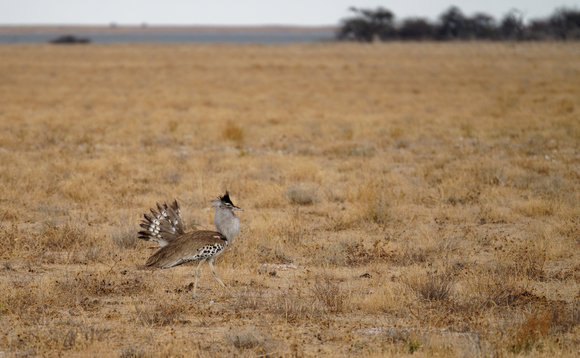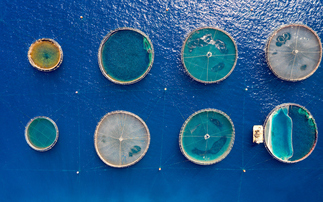Nature Ecology & Evolution study indicates habitability of environment for many animals will rapidly deteriorate once temperatures pass crucial thresholds
Climate change's impact on the animal world is unlikely to be gradual. As the world reaches dangerous new temperature extremes, species are likely to be abruptly pushed over crucial tipping points.
That is the conclusion of a new study published in Nature Ecology & Evolution Journal yesterday, which investigated how more than 35,000 species of animals and seagrasses would fare in a variety of different warming scenarios.
The research found that for most animals, large swathes of their geographic range are likely to become unfamiliarly, dangerously hot in a short span of time.
Specifically, the study investigated when areas within each species' geographic range will cross a threshold of "thermal exposure", defining the first five consecutive years where temperatures consistently exceed the most extreme monthly temperature reported between 1850 and 2014.
The research team from UCL, University of Cape Town, University of Connecticut and University of Buffalo found this thermal exposure threshold would be crossed for much of the geographic range of many animals within a decade.
The researchers noted that while the breaching of a thermal exposure threshold did not necessarily mean an animal would die, there is no evidence to indicate it would be able to survive.
"In the past we've had snapshots to show the impact of climate change, but here we are presenting the data more like a movie, where you can see the changes unfold over time," explained co-author Christpher Trisos, from the African Climate and Development Initiative from the University of Cape Town. "This shows that for many species the risk is more like everything, everywhere, all at once.
"By animating this process, we hope to help direct conservation efforts before it's too late, while also showing the potentially catastrophic consequences of letting climate change continue unchecked."
The findings underscore the extent to which higher temperatures will have a hiuge impact on animal populations. If the planet warms by 1.5C, 15 per cent of species will be at risk of experiencing unfamiliarly hot temperatures across at least 30 per cent of their existing geographic range in a single decade, the report calculates. This figure doubles to 30 per cent of species at 2.5C of warming.
"Our study is yet another example of why we need to urgently reduce carbon emissions to mitigate the harmful effects climate change is having on animals and plants, and avoid a massive extinction crisis," said the study's lead author, Alex Pigot from UCL's centre for biodiversity and environmental research.
He added: "It is unlikely that climate change will gradually make environments more difficult for animals to survive in. Instead, for many animals, large swathes of their geographic range are likely to become unfamiliarly hot in a short span of time."
Climate impacts on animal populations could have huge impacts for the agricultural sector and the wider economy through the loss of pollinators and other ecosystems services.
The reports comes in the same week as the World Meteorological Organisation warned that it was no likely one of the next five years would see temperatures exceed 1.5C of warming above pre-industrial levels.
Keep up to date with all the latest green business news by signing up to the free Daily and Weekly BusinessGreen Newsletters.










